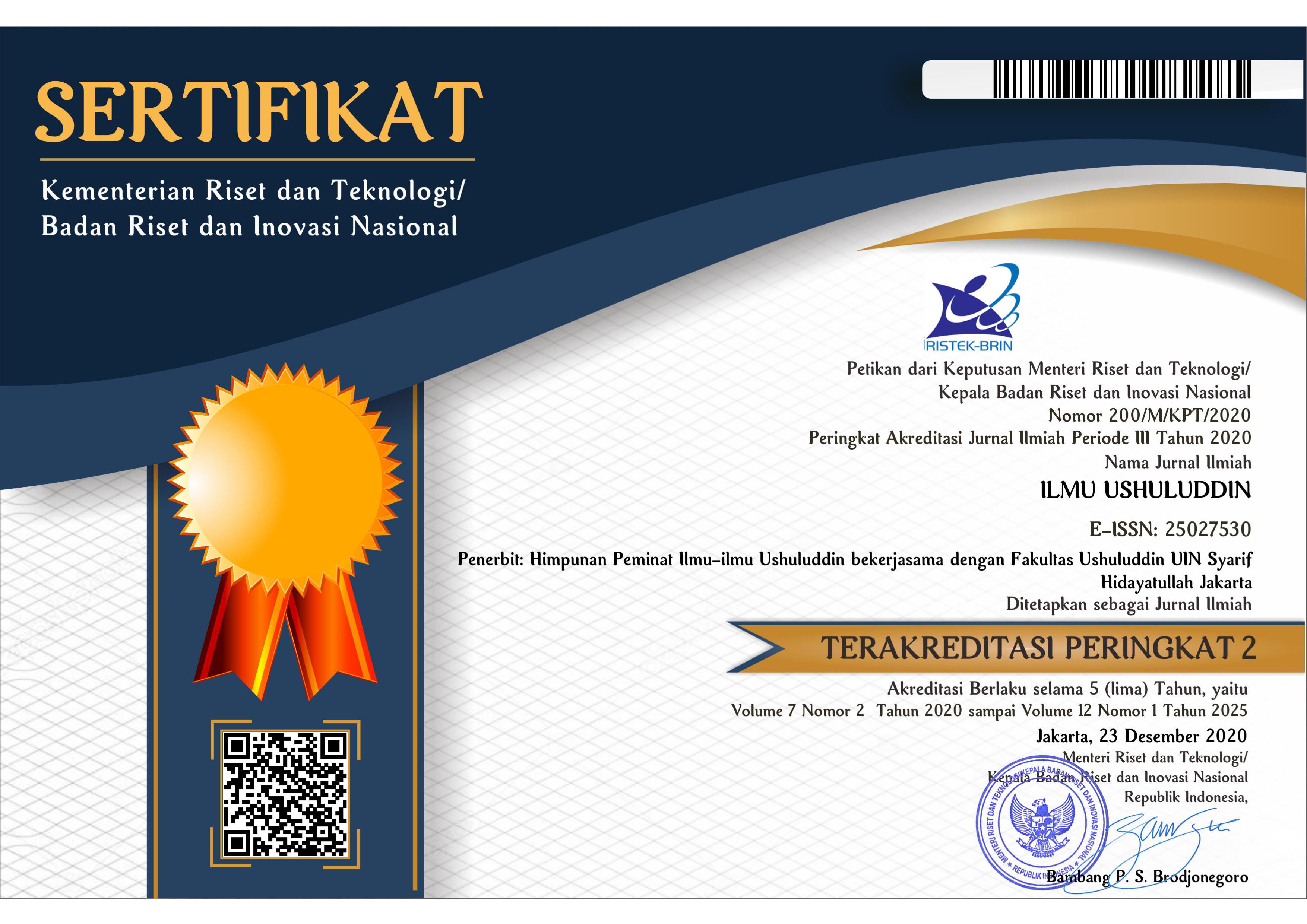The Importance of Public Reason in Democratic Society and the Criticism of Rawls’s Concept of Unreasonableness
DOI:
https://doi.org/10.15408/iu.v10i2.39034Keywords:
public reason, public reasoning, comprehensive doctrine, reasonable-unreasonable, democracyAbstract
People everywhere always live in diversity. Sometimes, people express their values in ways incompatible with the principle of reciprocity or reasonableness. In John Rawls's view, they are categorized as unreasonable because their expression does not align with public reason. In this article, we need to ask, are they really unreasonable and a threat to democracy? Here, we state that public reason is essential to democracy. However, we also need to build a fairer public life and broader public reasoning that engages people from wider background cultures. Thus, Rawls’ understanding of unreasonableness is challenging. We cannot exclude people who have not applied public reason from public life. We neither categorize them as unreasonable because they do not necessarily attack public reason. We can identify them as “in-between” reasonable and unreasonable people, and they are not really a threat to democracy. We need to engage and endorse them to explore a just public life. In order to build a fairer public life, we need to engage people widely and make public reasoning a place for learning the meaning of justice.
References
Ancell, Aaron. “The Fact of Unreasonable Pluralism.” Journal of the American Philosophical Association 5, no. 4 (2019): 410–428. Accessed March 1, 2022. https://philpapers.org/rec/ANCTFO.
Badano, Gabriele, and Alasia Nuti. “Under Pressure: Political Liberalism, the Rise of Unreasonableness, and the Complexity of Containment.” Journal of Political Philosophy 26, no. 2 (June 1, 2018): 145–168. Accessed May 27, 2020. http://doi.wiley.com/10.1111/jopp.12134.
Barton, Greg. “The Gülen Movement, Muhammadiyah and Nahdlatul Ulama: Progressive Islamic Thought, Religious Philanthropy and Civil Society in Turkey and Indonesia.” Islam and Christian–Muslim Relations 25, no. 3 (2014): 287–301. Accessed January 19, 2024. https://www.tandfonline.com/doi/abs/10.1080/09596410.2014.916124.
Brown, Gustav. “Civic Islam: Muhammadiyah, NU and the Organisational Logic of Consensus-Making in Indonesia.” Asian Studies Review 43, no. 3 (July 3, 2019): 397–414. Accessed January 19, 2024. https://www.tandfonline.com/doi/abs/10.1080/10357823.2019.1626802.
Clayton, Matthew, and David Stevens. “When God Commands Disobedience: Political Liberalism and Unreasonable Religions.” Res Publica 20, no. 1 (February 2014): 65–84. Accessed March 1, 2022. https://philpapers.org/rec/CLAWGC.
Dostert, Troy. Beyond Political Liberalism: Toward a Post-Secular Ethics of Public Life. Notre Dame: University of Notre Dame Press, 2006.
Freeman, Samuel. Rawls. London: Routledge, 2007.
Gaus, Gerald. The Order of Public Reason: A Theory of Freedom and Morality in a Diverse and Bounded World. Cambridge: Cambridge University Press, 2011.
Geertz, Clifford. The Interpretation of Cultures. New York: Basic Books, Inc., Publishers, 1973.
Gursozlu, Fuat. “Political Liberalism and the Fate of Unreasonable People.” Touro Law Review 30 (2014). Accessed May 27, 2020. https://heinonline.org/HOL/Page?handle=hein.journals/touro30&id=45&div=&collection=.
Habermas, Jürgen. “Pre-Political Foundations of the Democratic Constitutional State?” In Dialectic of Secularization on Reason and Religion, edited by Florian Schuler. San Francisco: Ignatius Press, 2005.
———. “Reconciliation through the Public Use of Reason: Remarks on John Rawls’s Political Liberalism.” In Habermas and Rawls: Disputing the Political, edited by James Gordon Finlayson and Fabian Freyenhagen. London and New York: Routledge Taylor and Francis Group, 2011.
Halimatusa’diyah, Iim. “Zakat and Social Protection: The Relationship Between Socio-Religious CSOs and the Government in Indonesia.” Journal of Civil Society 11, no. 1 (January 2, 2015): 79–99. Accessed January 19, 2024. https://www.tandfonline.com/doi/abs/10.1080/17448689.2015.1019181.
J. von Eschenbach, Warren. “Can Public Virtues Be Global?” https://doi.org/10.1080/17449626.2020.1722728 16, no. 1 (January 2, 2020): 45–57. Accessed March 1, 2022. https://www.tandfonline.com/doi/abs/10.1080/17449626.2020.1722728.
Kant, Immanuel. “Groundwork of The Metaphysic of Morals.” In Groundwork of the Metaphysic of Morals, edited by Allen Wood. New Haven: Yale University Press, 2002.
McMahon, Christopher. Reasonableness and Fairness: A Historical Theory. Cambridge: Cambridge University Press, 2016.
Mouffe, Chantal. “The Limits of John Rawls’s Pluralism.” Politics, Philosophy & Economics 4, no. 2 (June 11, 2005): 221–231. Accessed May 27, 2020. http://journals.sagepub.com/doi/10.1177/1470594X05052539.
———. The Return of The Political. London: Verso, 1993.
Mu’ti, Abdul. “Pluralistic Islamic Religious Education: A Vision for Indonesia.” The Review of Faith & International Affairs 21, no. 2 (April 3, 2023): 121–127. Accessed January 19, 2024. https://www.tandfonline.com/doi/abs/10.1080/15570274.2023.2200280.
Rawls, John. A Theory of Justice. Cambridge, MA.: The Belknap Press of Harvard University Press, 1999.
———. Political Liberalism. New York: Columbia University Press, 1996.
———. “The Idea of Public Reason Revisited.” In The Law of Peoples with “The Idea of Public Reason Revisited.” Cambridge, MA.: Harvard University Press, 2000.
———. “The Law of Peoples.” In The Law of People with “The Idea of Public Reason Revisited.” Cambridge, MA.: Harvard University Press, 2000.
Regus, Maksimus. “Educating from the Periphery: The Mission of the Catholic Church in Advancing a Knowledge Society in Manggarai Region, Indonesia.” International Studies in Catholic Education 14, no. 2 (July 3, 2022): 216–230. Accessed January 19, 2024. https://www.tandfonline.com/doi/abs/10.1080/19422539.2022.2125250.
Sala, Roberta. “Reasonable Values and the Value of Reasonableness. Reflections on John Rawls’ Political Liberalism.” Phenomenology and Mind, no. 3 (2012): 150–157. Accessed March 1, 2022. https://oaj.fupress.net/index.php/pam/article/view/7099.
———. “The Place of Unreasonable People beyond Rawls.” European Journal of Political Theory 12, no. 3 (July 21, 2013): 253–270. Accessed May 27, 2020. http://journals.sagepub.com/doi/10.1177/1474885112465248.
Sandel, Michael J. Justice: What’s the Right Thing To Do? New York: Farrar, Straus and Giroux, 2009.
———. Liberalism and The Limits of Justice. Cambridge: Cambridge University Press, 1982.
Sen, Amartya. Reason before Identity. Oxford: Oxford University Press, 1999.
———. The Idea of Justice. Cambridge, MA.: The Belknap Press of Harvard University Press, 2009.
Taylor, Charles. “The Politics of Recognition.” In Social and Political Philosophy: Contemporary Readings, edited by Baruch A. Brody and George Sher. Philadelphia: Harcourt Brace College Publisher, 1999.
Thomas, Nancy L. “Educating for Deliberative Democracy: The Role of Public Reason and Reasoning.” Journal of College and Character 9, no. 2 (November 1, 2007): 1–13. Accessed January 19, 2024. https://www.degruyter.com/document/doi/10.2202/1940-1639.1121/html?lang=en.
Yates, Melissa. “Rawls and Habermas on Religion in the Public Sphere.” Philosophy & Social Criticism 33, no. 7 (November 19, 2007): 880–891. Accessed May 27, 2020. http://journals.sagepub.com/doi/10.1177/0191453707081685.


